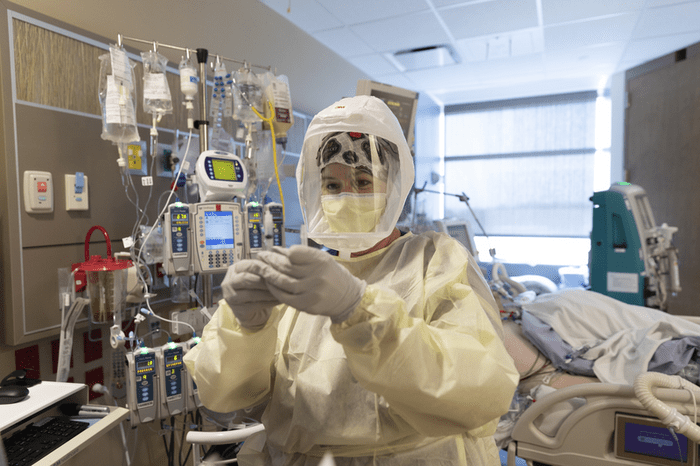The COVID-19 pandemic impacted just about every part of people’s lives. Quarantining, social distancing, societal disruptions and an ever-shifting, uncertain landscape of rules and restrictions and variants created stress and isolation that impacted the mental health of millions of Americans.
Now, in a new study of nearly 136,000 patients from Intermountain Health in Salt Lake City, researchers found that depressive symptoms and severity of depression was significant among all patients in the study, regardless of whether they were infected with COVID-19 or not.
In the study, results of which were presented at the American College of Cardiology’s 2023 scientific session in New Orleans on March 4, Intermountain researchers found that depression symptoms rose significantly during the pandemic, with more than half of all patients reporting some degree of clinically-relevant depressive symptoms.
“It didn’t matter if a patient was positive or negative for the virus. We found increased rates of depression and depression severity across the board,” said Heidi T. May, PhD, cardiovascular epidemiologist at Intermountain Health and principal investigator of the study. “As poor mental health can impact chronic diseases, including cardiovascular disease, screening for and treating mental health is a critical part of any overall patient care process right now. Doing so will both help patients in this moment, and protect their future health.”
In the Intermountain study, researchers examined 135,864 patients who completed their first Patient Healthcare Questionnare-9 (PHQ-9), which is used to screen for depression, in a primary care setting from January 1, 2016, to April 20, 2022.
They then looked at how those scores, which categorize patients’ depression into none (<10), mild (10-14), moderate (15-19) and severe (>20), over time.
The researchers found a significant increase in PHQ-9 scores, with the mean PHQ-9 score rising by 1.5 points.
They also found that before the pandemic, about 45% of patients reported some degree of depression. Starting in 2021, that changed to 55% of patients showing at least some degree of depression. There was no significant difference in scores among COVID positive and negative patients.
Depression, anxiety, stress, and PTSD are linked to higher rates of high blood pressure and higher levels of cortisol, which can lead to calcium buildup in the arteries, metabolic disease, and heart disease, according to the CDC.
“We know depression is a risk factor for chronic disease, so given these findings, it’s really important to mitigate some of the effects of depression so these patients can lead healthier and happier lives right now, and in the future,” said Dr. May.
###
Method of Research
Observational study
Subject of Research
People
















